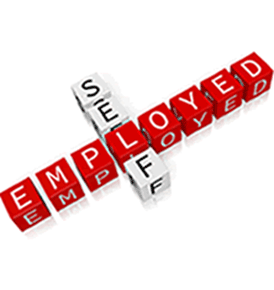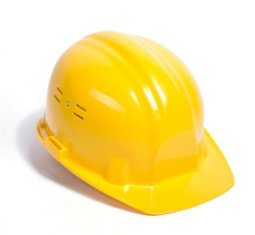Self-employed – do you still have duties?
In 2011, the Löfstedt Review recommended that those self-employed whose work activities pose no potential risk of harm to others should be exempt from health and safety law. This recommendation was accepted by Government.
So, since 1 October 2015, if you are self-employed and your work activity poses no potential risk to the health and safety of other workers or members of the public, then health and safety law will not apply to you.
So this week I thought I’d look at this legislation and see if it applies to you or not.
The two HSE cases this week both look at tragic accidents that shouldn’t have happened
- An employee suffered burn injuries following a fire caused by use of highly flammable liquid to clean rollers on a coating machine
- An eight year old boy who fell from a vehicle on his parent’s farm in Kirkbean ended up with an amputated leg
As ever, if you have a subject that you would like us to cover one week, please contact us by phone 01458 253682, email or via our Facebook page or by Twitter.
Self-employed – do you still have duties?
So, since 1 October 2015, if you are self-employed and your work activity poses no potential risk to the health and safety of other workers or members of the public, then health and safety law will not apply to you
The HSE estimate that health and safety law will no longer apply to 1.7 million self-employed people like novelists, journalists, graphic designers, accountants, confectioners, financial advisors and online traders
So let’s look at this ruling a little closer
What the law says
- if your work activity is specifically mentioned in the regulations above
or
- if your work activity poses a risk to the health and safety of others, then the usual Health & Safety law applies to you,
So what is meant by the term ‘self-employed’?
For health and safety law purposes, ‘self-employed’ means that you do not work under a Contract of employment or Contract of service and work only for yourself.
- The term “contract of employment” has not been comprehensively defined either in legislation or case law. Over the years, the courts have adopted various tests in order to determine whether or not a certain relationship amounts to a relationship of employment. The modern approach adopted by the courts is to consider all the factors relevant to the issue of employment and to weigh up those factors that point towards the existence of a contract of employment and those that point away from such a contract
- However, a “contract for services” is a contract whereby a person is merely under an obligation to perform some work or service for another person, without an employment relationship being created between the two. People working under a “contract for services” are usually contractors or self-employed.
If you’re self-employed and employ others the law, that has applied to you for many years, will apply to you. You may be self-employed for tax purposes, but this may not be so for health and safety.
What is a ‘risk to the health and safety of others’?
This is the likelihood of someone else being harmed or injured (e.g. members of the public, clients, contractors etc) as a consequence of your work activity.
Most self-employed people will know if their work poses a risk to the health and safety of others. You must consider the work you are doing and judge for yourself if it creates a risk or not.
For example if you operate a fairground ride for the public to use then your work could affect the health and safety of other people and you must take appropriate steps to protect them as the law will apply to you.
How do I know if I create a risk to others?
Think about the types of activities you undertake as part of your work and ask yourself if they pose a risk to the health or safety of others.
You have a duty to protect yourself and others from the risks your work creates, even if this is only for a small part of your overall work activity. However, in practical terms, if you are self-employed you will not have to do anything where there is no risk to others.
Can other people be affected by your work activities? If so, think about the services that you provide to them, in particular:
- Your working environment? Do you work in a garage, workshop or workplace where other people have access? Could you harm their health or safety?
- The equipment, materials or substances that you use? Could someone be burnt, scalded, crushed, trip over or fall? Does your work activity create noise, dust, fumes? Do you use any materials or substances that could injure someone if they came into contact with them?
If the answer is yes to any of above, then it is likely that your work activities may pose a risk to the health and safety of another person and the health and safety legislation will apply to you.
Examples – does the law apply to me?
It is impossible to list all work activities undertaken by the self-employed, the examples below of a range of self-employed jobs are illustrative and will help you determine the types of jobs that do or don’t create risks and whether or not they are likely to be exempt from health and safety.
- Hairdresser – I’m a self-employed hairdresser, does the law apply to me?
If you use bleaching agents or similar chemicals then yes, the law will apply to you. If you are simply washing and cutting hair, then health and safety law will no longer apply. - Dressmaker – I work at home altering garments and making soft furnishings, does the law apply to me? No, health and safety law will not apply to you.
- Photographer – I take photographs of weddings and special occasions for clients which means that sometimes they visit my studio to discuss arrangements; does the law apply to me? No, health and safety law will not apply to you.
- Artist – I produce cards, gifts and pictures for sale at markets and fairs, does the law apply to me? No, health and safety law will not apply to you.
- Baker – I run a cake business from home, does the law apply to me? No, health and safety law will not apply to you although you do have duties under the food safety regulations.
- Office work – I work in an office at home, does the law apply to me? It doesn’t depend on whether you’re at home; it is the work activity that matters. So, if you’re working on a client’s accounts, even if clients visit you in your place of work, the law will no longer apply. If you’re writing a manual, which someone will use to operate machinery, then the law will still apply.
- Architect/Engineer work – I work in an office at home, does the law apply to me? As with the answer above, it doesn’t depend on whether you’re at home; it is the work activity that matters. So, if you’re working on a design for a building or part of a building, which someone will follow to build that building and they could be at risk whilst doing this, then the law will still apply.
- Advice – I am a health and safety consultant and visit clients to give advice, does the law apply to me? Yes, your clients will act on your advice and this affects how other people do their job.
- Landlords – I let rooms and properties to tenants; does the law apply to me? Yes, you have specific responsibilities under the Gas Safety (Installation and Use) Regulations
High Risk activities
The law says that there are certain work activities where the law applies because they are high risk. If your work involves any of these activities, then the law will apply to you.
Agriculture (including forestry)
Agriculture (including forestry) means any work activity mentioned in regulation 2(1) of the Health and Safety (Enforcing Authority) Regulations 1998:
Agricultural activities means all types of farming including arable and dairy, the keeping of livestock, grazing land, market gardening and forestry.
Asbestos
Any work with asbestos which:
- involves a sampling activity; but
- is not work with asbestos.
Any activity carried out by a dutyholder under regulation 4 of the Control of Asbestos Regulations 2012 (the “2012 Regulations”) (duty to manage asbestos in non-domestic premises).
In this paragraph—
- “asbestos” has the meaning given in regulation 2 of the 2012 Regulations;
- “dutyholder” has the meaning given in regulation 4(1) of the 2012 Regulations;
- “sampling activity” means—
- air monitoring;
- the collection of air samples; or
- the analysis of air samples, to ascertain whether asbestos fibres are present in the air, or to measure the concentration of such fibres; and
- “work with asbestos” is to be read in accordance with regulation 2(2) of the 2012 Regulations.
Construction
Any work which is carried out on a construction site.
And any work in relation to a project carried out by a designer, a client, a contractor, a principal contractor or a principal designer which gives rise to a duty under the Construction (Design and Management) Regulations 2015 (“the 2015 Regulations”).
In this paragraph:
- “client”, “contractor”, “designer”, “principal contractor”, “principal designer” and “project” have the meanings given in regulation 2(1) of the 2015 Regulations; and
- “construction site” is to be read in accordance with that regulation.
Gas
Working with gas includes the installing, servicing, maintaining or repairing of any gas appliances or gas fittings both in domestic and commercial premises.
Landlords have specific responsibilities to their tenants with regards gas safety.
Railways
This means any work activity mentioned in regulation 2 of the Health and Safety (Enforcing Authority for Railways and Other Guided Transport Systems) Re

gulations 2006 [7].
Working on a railway or tramway includes driving, loading and unloading the vehicles and any maintenance or repairs to vehicles or infrastructure. It also includes signalling operations and training
Genetically Modified Organisms
If your work activity involves GMOs within a research laboratory or a biotechnology production facility and not released into the environment, then you are not exempt. Further advice and guidance can be found on the biosafety webpages on GMOs
If you have any questions about this or any other safety topic then Please contact us by phone 01458 253682 Email [email protected] or visit www.wilkinssafety.co.uk for more information and assistance
Introducing our Associate in Scotland.

Douglas M Browning CMIOSH CMaPS
Douglas has joined us as our Scotland based associate. He has a proactive approach to Construction Risk Management utilising his many years of experience as a CDM Consultant and Construction Health and Safety Practitioner to assist designers, clients and Contractors on their projects.
Much of his time over the past 3 years has seen him fulfil the role of Health and Safety Manager for a major services contractor covering their offices in Edinburgh, Newcastle and Manchester. This included developing policies, carrying out training, accident investigations, undertaking 15-20 site inspections per month throughout the United Kingdom, liaising with key clients and providing advice to all levels of the organisation on health and safety matters.
Douglas is also a CHAS and a SSIP Accredited Assessor
Douglas is a member of:
- Institution of Occupational Safety and Health, Chartered Member (CMIOSH)
- Association for Project Safety, Certified Member (CMaPS)
Taunton & Somerset CPD Group at The Lawns Taunton
Trust you are all having a good summer despite the weather and we hope you will all be able to attend the next CPD Group meeting as it looks like it will be very interesting.
Martin Kent our Customer Relations Manager has arranged this month’s seminar – see below. As previously requested, if you could let Martin know whether or not you can attend it would be greatly appreciated. Also, if you would like to give a talk, or know of somebody who would, please contact Martin.
The first of these Autumn seminars is on Wed 13th September at 12:15pm prompt please: at The Lawns Taunton.
Our Speaker will be from Altro Flooring will be coming along to do a “Designing for Dementia”.
If you haven’t already booked your place, or if you are not on the CPD Seminar mailing list but would like to be please drop Martin an email and he will deal with your request.
Just to give you some advanced notice the next seminar will be 18th October when GronoDec will be coming along.
Then the final Seminar of the year will be 22nd Nov speaker to be confirmed.
